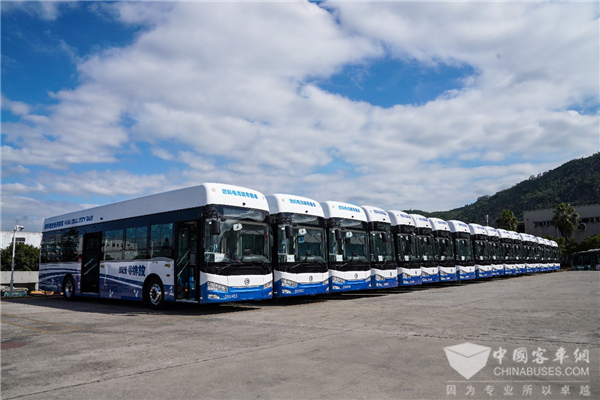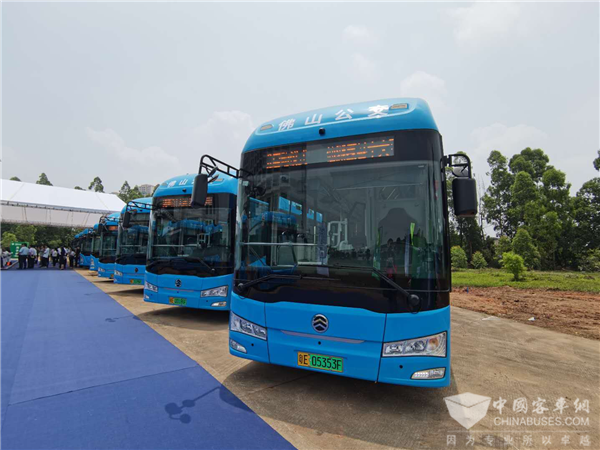According to the latest statistics released by China Association of Automobile Manufacturers (CAAM), Golden Dragon ranks the first place among 23 manufacturers of fuel cell vehicles in China with a total sales volume of 288 units fuel cell buses.

As one of the pioneers in the fuel cell bus industry, Golden Dragon launched its fuel cell bus development program in 2010 and successfully rolled out its first generation fuel cell buses in 2016. Since September, 2017, its eight-meter fuel cell buses have been in smooth operation in Shanghai and Xiamen. In 2018, Golden Dragon was held in charge of the development of power systems and integrated manufacturing technologies. Thanks to its relentless efforts, Golden Dragon fuel cell buses achieve better performances and higher reliability. Being able to get hydrogen refills in more efficient manner and drive longer distances continuously, they could work smoothly in extreme temperatures.
Golden Dragon has signed strategic cooperation agreement with Kah Kee Innovation Lab of Xiamen University. In addition, the bus maker has been working closely with SinoHytec, Refire and other leading players in the hydrogen energy industry, making tremendous impacts on the fast and sound development of the industry.

Currently, Golden Dragon boasts a wide spectrum of fuel cell buses measuring from 8 meters to 12 meters in length, further diversifying its product line. In 2019 alone, it secured an order of 100 unit fuel cell buses worth 148.6 million RMB from Jiashan County, Zhejiang province and 186 units fuel cell buses worth 368 million RMB from Nanhai District, Foshan, Guangdong province. So far, Golden Dragon fuel cell buses have established a solid presence in a number of cities across China, including Fuzhou, Wuhan, Datong, etc.
In November, 2020, China’s State Council officially released New Energy Vehicle Industry Development Plan (2021-2035), showing the nation’s determination to promote the commercialization of fuel cell vehicles. According to TrendBank, China’s sales volume of fuel cell vehicles in the first and fourth quarter of 2020 accounted for nearly 70% of the whole year’s total sales volume of fuel cell vehicles. Also, the sales volume of fuel cell city buses accounted for nearly 90% of the whole year’s total sales volume of fuel cell vehicles.
So far, governments at various levels across China have rolled out concrete measures to support the development and commercialization of fuel cell vehicles. According to Ouyang Minggao, a professor from Tsinghua University, China’s fuel cell vehicle industry will make huge progress and reach a fairly large scale by 2025.